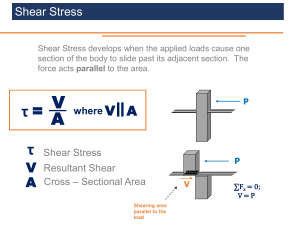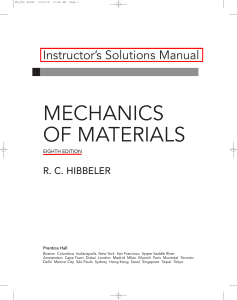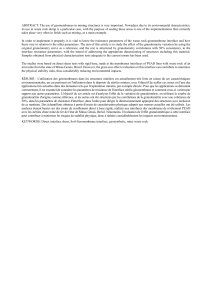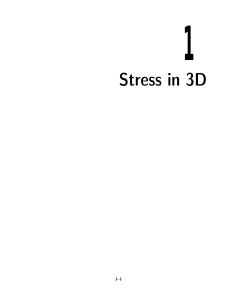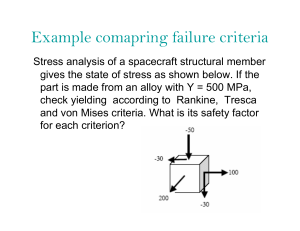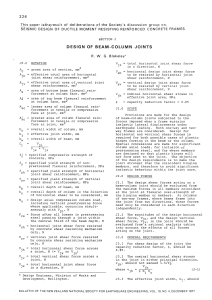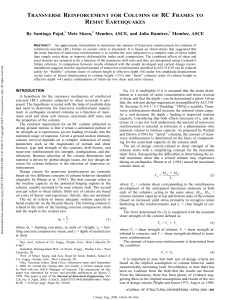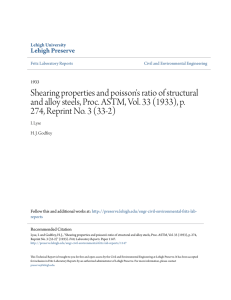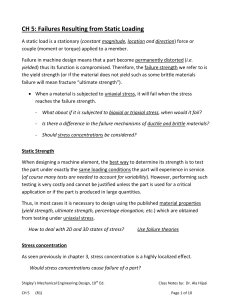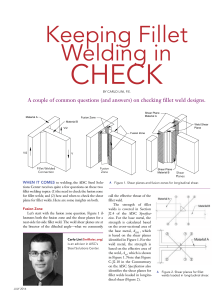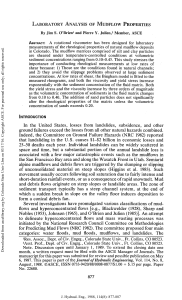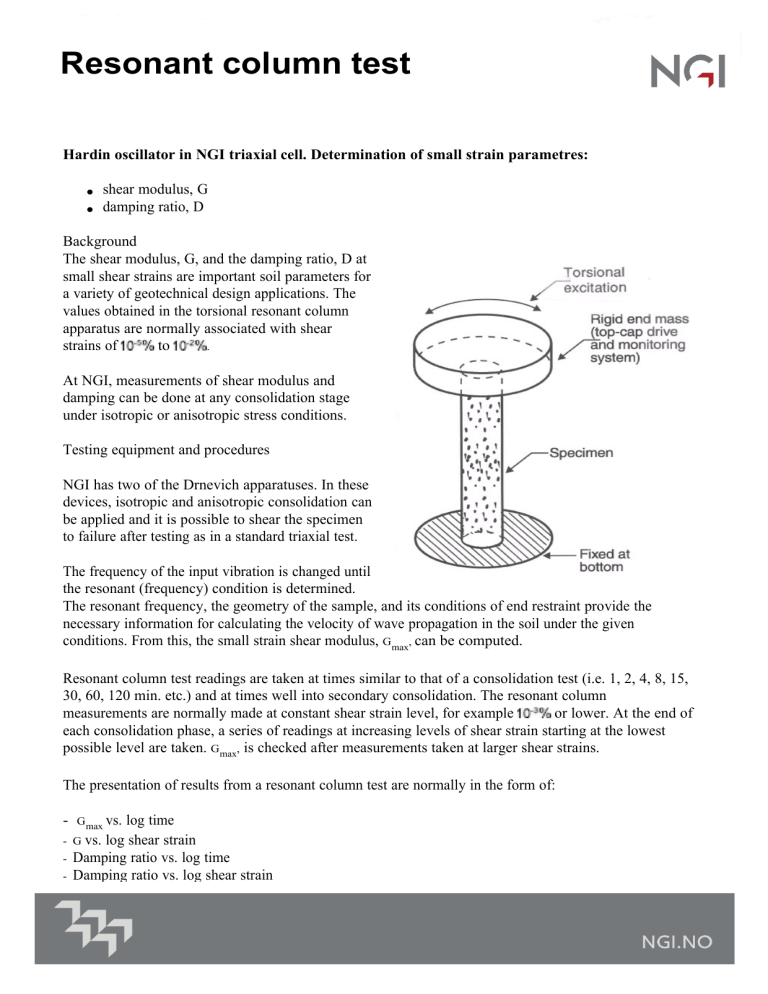
Resonant column test Hardin oscillator in NGI triaxial cell. Determination of small strain parametres: ● ● shear modulus, G damping ratio, D Background The shear modulus, G, and the damping ratio, D at small shear strains are important soil parameters for a variety of geotechnical design applications. The values obtained in the torsional resonant column apparatus are normally associated with shear strains of to . At NGI, measurements of shear modulus and damping can be done at any consolidation stage under isotropic or anisotropic stress conditions. Testing equipment and procedures NGI has two of the Drnevich apparatuses. In these devices, isotropic and anisotropic consolidation can be applied and it is possible to shear the specimen to failure after testing as in a standard triaxial test. The frequency of the input vibration is changed until the resonant (frequency) condition is determined. The resonant frequency, the geometry of the sample, and its conditions of end restraint provide the necessary information for calculating the velocity of wave propagation in the soil under the given conditions. From this, the small strain shear modulus, Gmax, can be computed. Resonant column test readings are taken at times similar to that of a consolidation test (i.e. 1, 2, 4, 8, 15, 30, 60, 120 min. etc.) and at times well into secondary consolidation. The resonant column measurements are normally made at constant shear strain level, for example or lower. At the end of each consolidation phase, a series of readings at increasing levels of shear strain starting at the lowest possible level are taken. Gmax, is checked after measurements taken at larger shear strains. The presentation of results from a resonant column test are normally in the form of: - Gmax vs. log time G vs. log shear strain Damping ratio vs. log time Damping ratio vs. log shear strain Side / Page 2 Example applications of resonant column tes Geotechnical problem Laboratory test results Model for earthquake loading of power plant Earthquake resistent design of earth and rockfill dams Resonance problems in deep water sites Kontakter Avdelingsleder, Offshore energi, Laboratorium og modellforsøk [email protected] Tlf: 476 00 553 Teknisk ekspert - Fagansvarlig Geoteknisk laboratorium, Offshore energi, Laboratorium og modellforsøk [email protected] Tlf: 928 19 586
